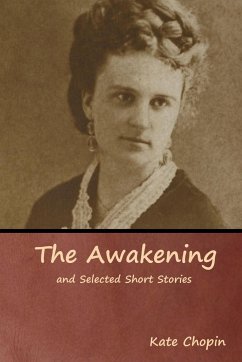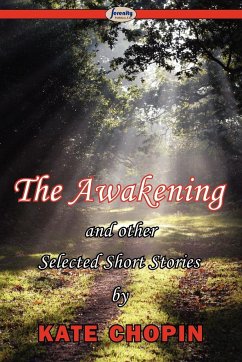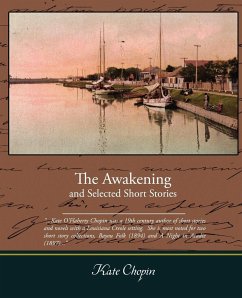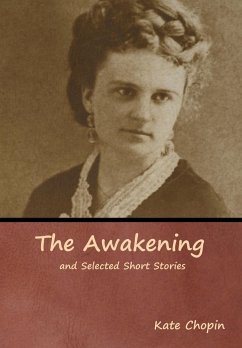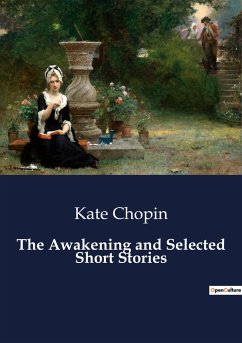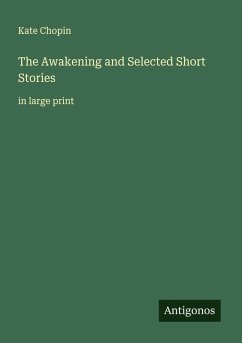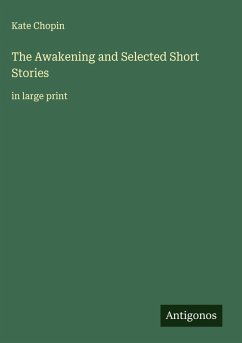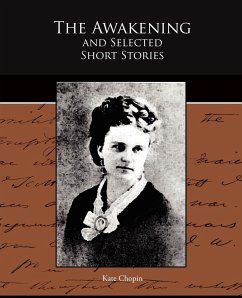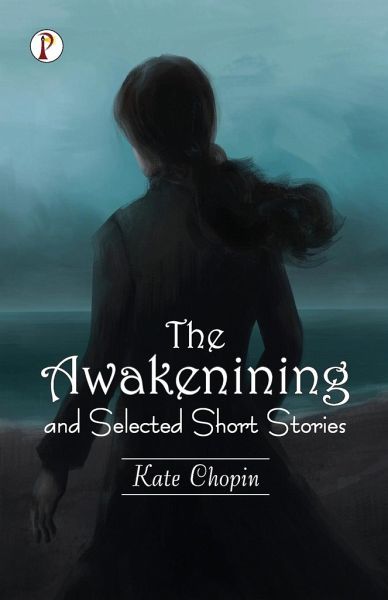
The Awakening and Selected Short Stories
Versandkostenfrei!
Versandfertig in 1-2 Wochen
16,99 €
inkl. MwSt.

PAYBACK Punkte
8 °P sammeln!
Kate Chopin is known to exhibit feminine resistance to patriarchal society through her short stories. Critics claim that Chopin's resistance can be traced through the timeline of her work, with Chopin becoming more and more understanding of how women can fight back suppression as time progresses. To demonstrate this, Martha Cutter argues that Chopin's earlier stories, such as "At the 'Cadian Ball," "Wiser than a God," and "Mrs. Mobry's Reason" present women who are outright resisting and are therefore not taken seriously, are either erased or called insane. However, in Chopin's later stories, ...
Kate Chopin is known to exhibit feminine resistance to patriarchal society through her short stories. Critics claim that Chopin's resistance can be traced through the timeline of her work, with Chopin becoming more and more understanding of how women can fight back suppression as time progresses. To demonstrate this, Martha Cutter argues that Chopin's earlier stories, such as "At the 'Cadian Ball," "Wiser than a God," and "Mrs. Mobry's Reason" present women who are outright resisting and are therefore not taken seriously, are either erased or called insane. However, in Chopin's later stories, the female characters take on a different voice of resistance, one that is more "covert" and works to undermine patriarchal discourse from within. According to Cutter, Chopin wanted to "disrupt patriarchal discourse, without being censored by it." And to do this, Chopin tried different strategies in her writings: silent women, overly resistant women, women with a "voice covert," and women who mimic patriarchal discourse. The female characters in her most renowned work, The Awakening, went beyond the standards of social norms of the time. The protagonist has sexual desires and questions the sanctity of motherhood. The novel explores the theme of marital infidelity from the perspective of a wife. The book was widely banned and fell out of print for several decades before being republished in the 1970s. Today, The Awakening is said to be one of the five top favorite novels in literature courses all over America.




